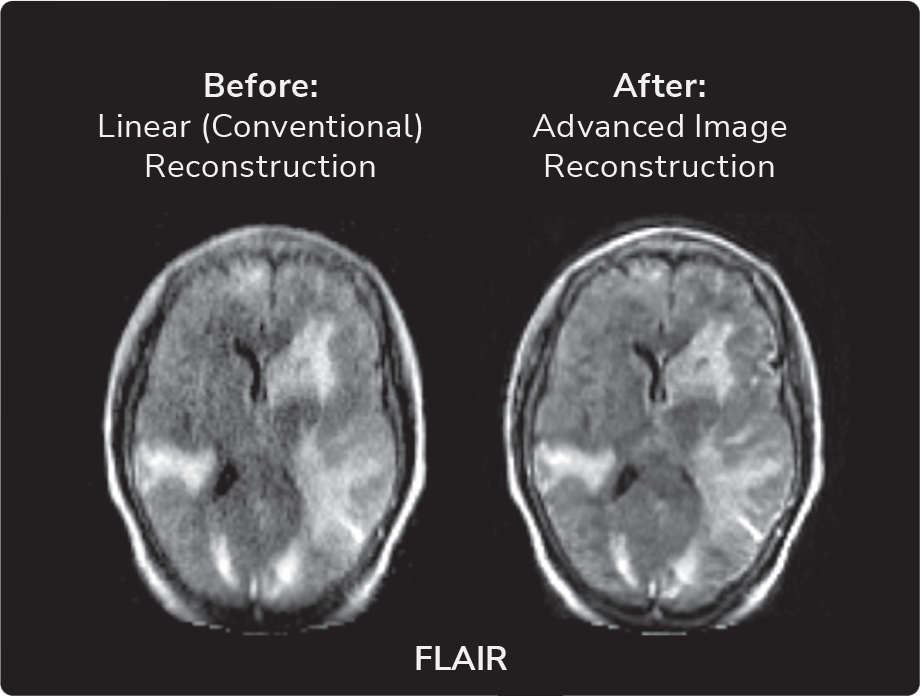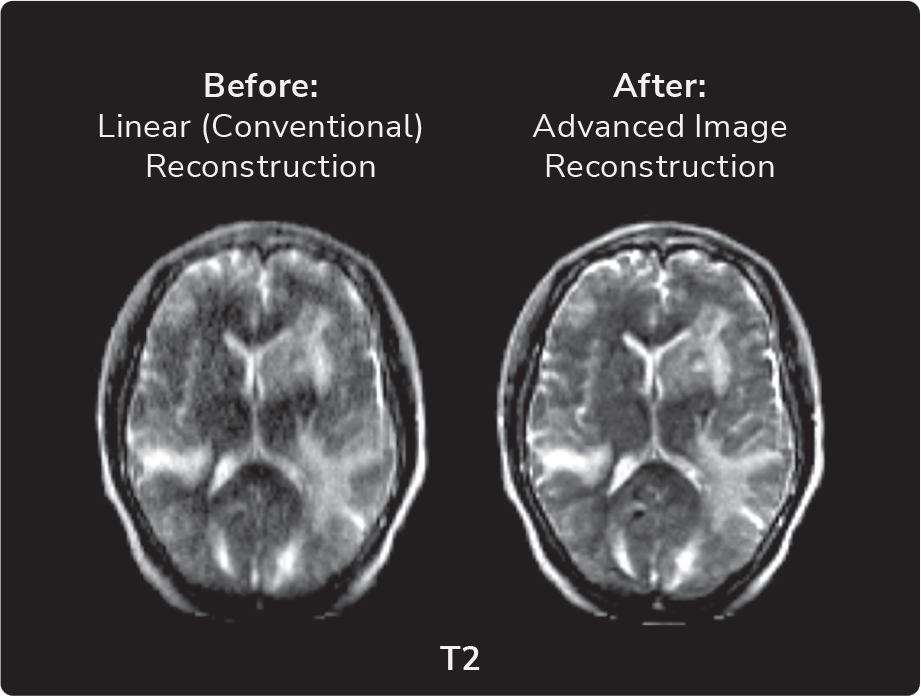Image intelligently.
The next evolution in portable MR imaging defines the future of life-saving diagnostics with deep learning image reconstruction.
In 1977, the invention of MRI transformed medicine—for some people.
In 1977, the invention of MRI (magnetic resonance imaging) transformed medicine—for some people. Today, entire regions of the world lack access to MRI. Elsewhere, MRI exists in select hospitals, hemmed in by cement, steep learning curves, anxiety, and towering expense. Even in facilities that offer MRI, it can be resource-intensive and a lengthy, isolating, and stressful procedure for the patient.
With the introduction of the Swoop® Portable MR Imaging System™, Hyperfine took advantage of advancements in computing, cloud, and artificial intelligence to design an affordable and portable system with the potential to increase access to time-critical diagnostics and transform the standard of care for neuroimaging.
Advanced Image Reconstruction.
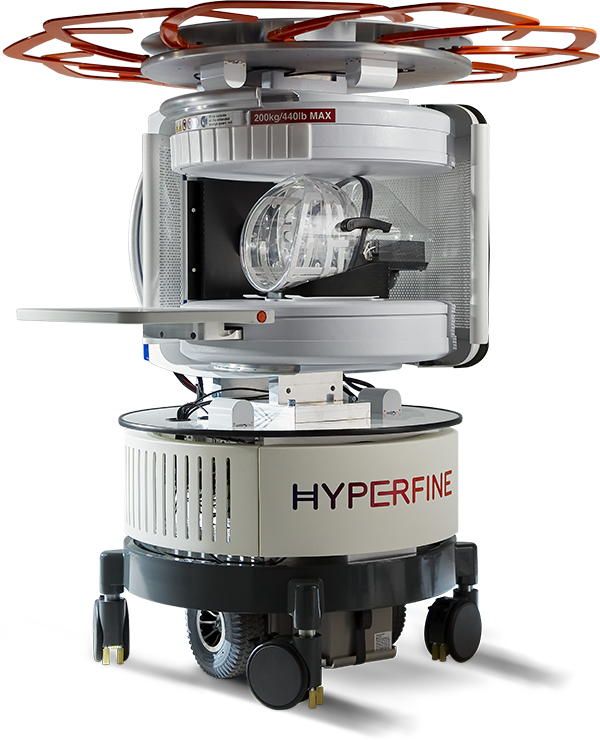
Groundbreaking is a term one frequently hears in medicine, but the 2021 FDA clearance of advanced image reconstruction software is a technological breakthrough. Since their inception, MRI systems have been sequestered in isolated rooms with strict requirements on siting, electromagnetic interference, and personnel access. Hyperfine developed algorithms to unleash the power of MRI and deploy it to the patient. The Swoop system’s innovative approach uses deep learning in the reconstruction pipeline as a key enabling technology that makes point-of-care MRI possible.
To create this advanced image reconstruction, Hyperfine used deep learning—a technology that uses artificial neural networks (ANNs). ANNs are a set of algorithms modeled loosely after the human brain and designed to recognize patterns. Using this technology, Hyperfine trained Swoop software to improve T1, T2, and FLAIR image quality by reducing image blurring and noise. With this software upgrade, Swoop uses a unique advanced image reconstruction pipeline to improve two steps of the image reconstruction process—advanced gridding and advanced denoising. View the white paper.
Advanced Image Reconstruction: Before and After
Advanced gridding transforms the spatial frequency domain data (k-space data) from the Swoop system into an image in a more optimal way. Based on deep learning, this unique approach is superior to the traditional approach of using non-uniform fast Fourier transform (FFT) gridding since it operates directly on k-space data and can more effectively compensate for non-ideal signal encoding than other approaches that operate on the final reconstructed MRI images.
Advanced denoising, the second application of deep learning in Swoop advanced image reconstruction, is part of the post-processing image reconstruction step. Hyperfine used deep learning to create an algorithm that applies denoising in small patches across the entire image. This process removes noise from the signal while preserving diagnostically critical information.
With the introduction of advanced image reconstruction, Swoop delivers crisp, clear T1, T2, and FLAIR images with the potential to provide clinicians with a greater degree of confidence in acute clinical diagnosis.
Clinical case studies using advanced image reconstruction.
5-year-old comatose boy presenting with fever.
EEG is noted to be asymmetric. A Swoop scan immediately following EEG shows multiple focal regions of cortical edema and local mass effect (blue arrows). The cortical detail is more clearly seen with higher definition utilizing the advanced image reconstruction. The patient is from a sub-Saharan tropical country, and the physician diagnosed cortical cerebral malaria.
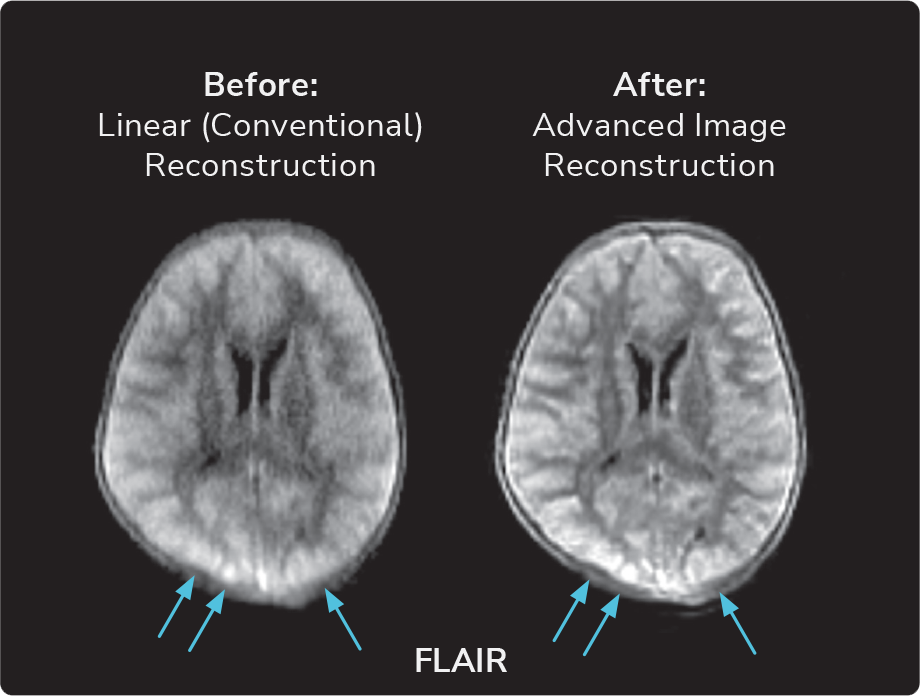
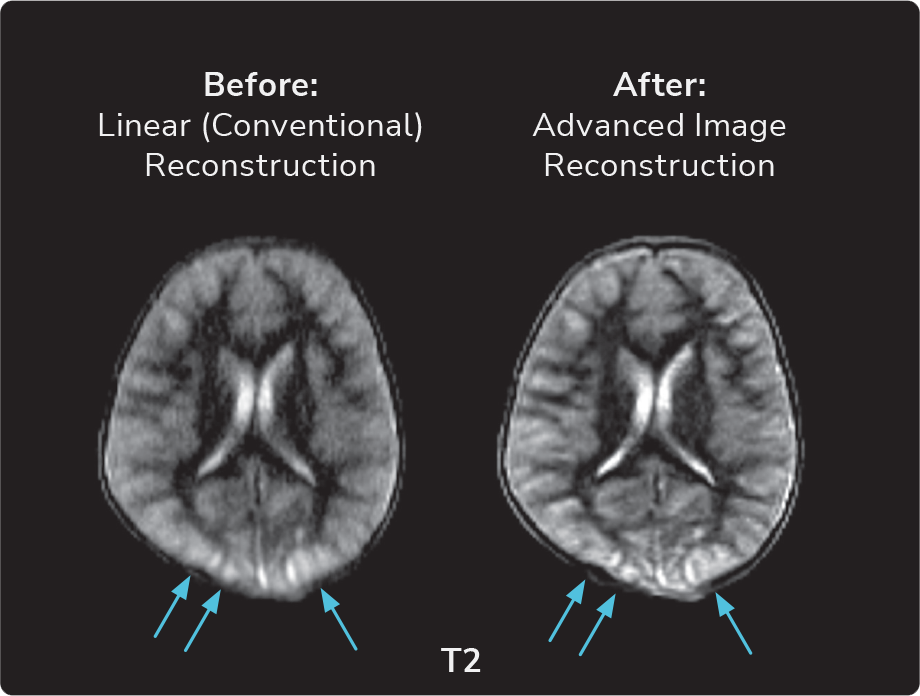
62-year-old female with prior history of breast carcinoma.
Treated with local therapy and was in a normal state of good health until new-onset seizure. Due to the patient’s unstable condition while in the emergency department, the patient was imaged at the bedside using Swoop. Images show multiple intracranial metastatic lesions with surrounding mass effect and vasogenic edema, more clearly delineated with advanced image reconstruction.
